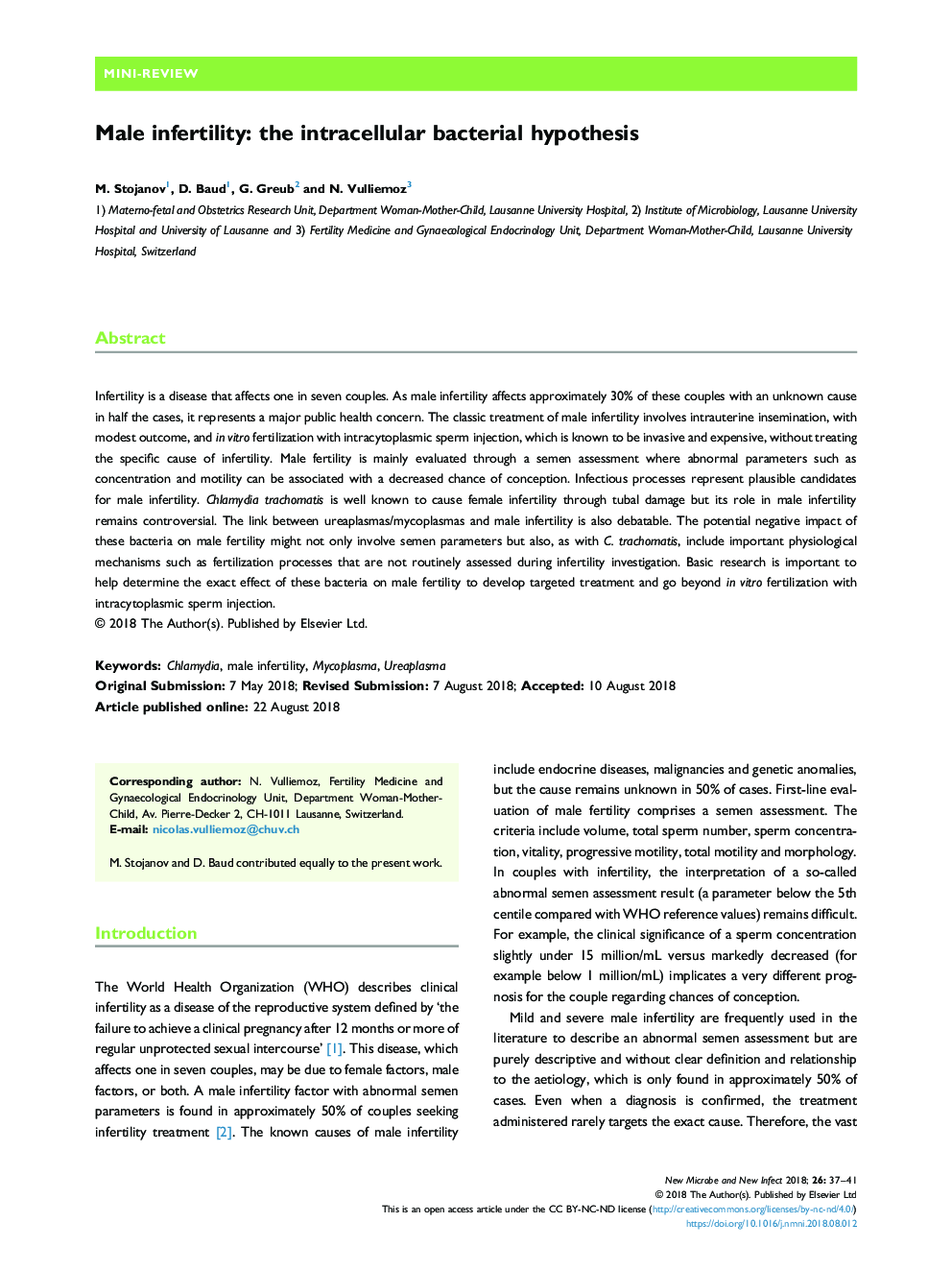| Article ID | Journal | Published Year | Pages | File Type |
|---|---|---|---|---|
| 10218758 | New Microbes and New Infections | 2018 | 5 Pages |
Abstract
Infertility is a disease that affects one in seven couples. As male infertility affects approximately 30% of these couples with an unknown cause in half the cases, it represents a major public health concern. The classic treatment of male infertility involves intrauterine insemination, with modest outcome, and in vitro fertilization with intracytoplasmic sperm injection, which is known to be invasive and expensive, without treating the specific cause of infertility. Male fertility is mainly evaluated through a semen assessment where abnormal parameters such as concentration and motility can be associated with a decreased chance of conception. Infectious processes represent plausible candidates for male infertility. Chlamydia trachomatis is well known to cause female infertility through tubal damage but its role in male infertility remains controversial. The link between ureaplasmas/mycoplasmas and male infertility is also debatable. The potential negative impact of these bacteria on male fertility might not only involve semen parameters but also, as with C. trachomatis, include important physiological mechanisms such as fertilization processes that are not routinely assessed during infertility investigation. Basic research is important to help determine the exact effect of these bacteria on male fertility to develop targeted treatment and go beyond in vitro fertilization with intracytoplasmic sperm injection.
Related Topics
Life Sciences
Immunology and Microbiology
Microbiology
Authors
M. Stojanov, D. Baud, G. Greub, N. Vulliemoz,
